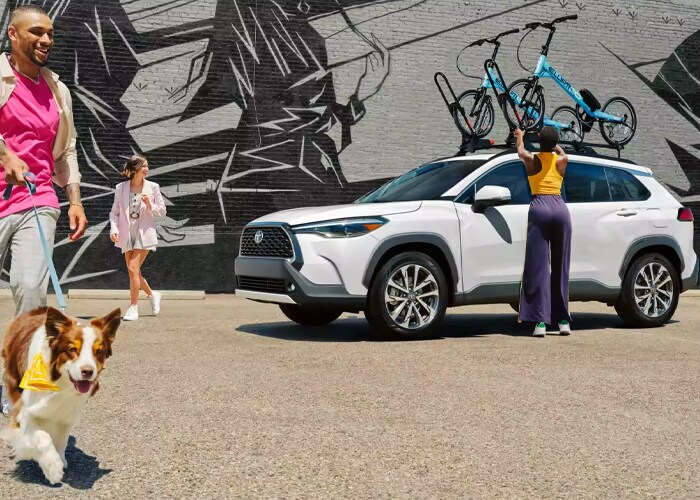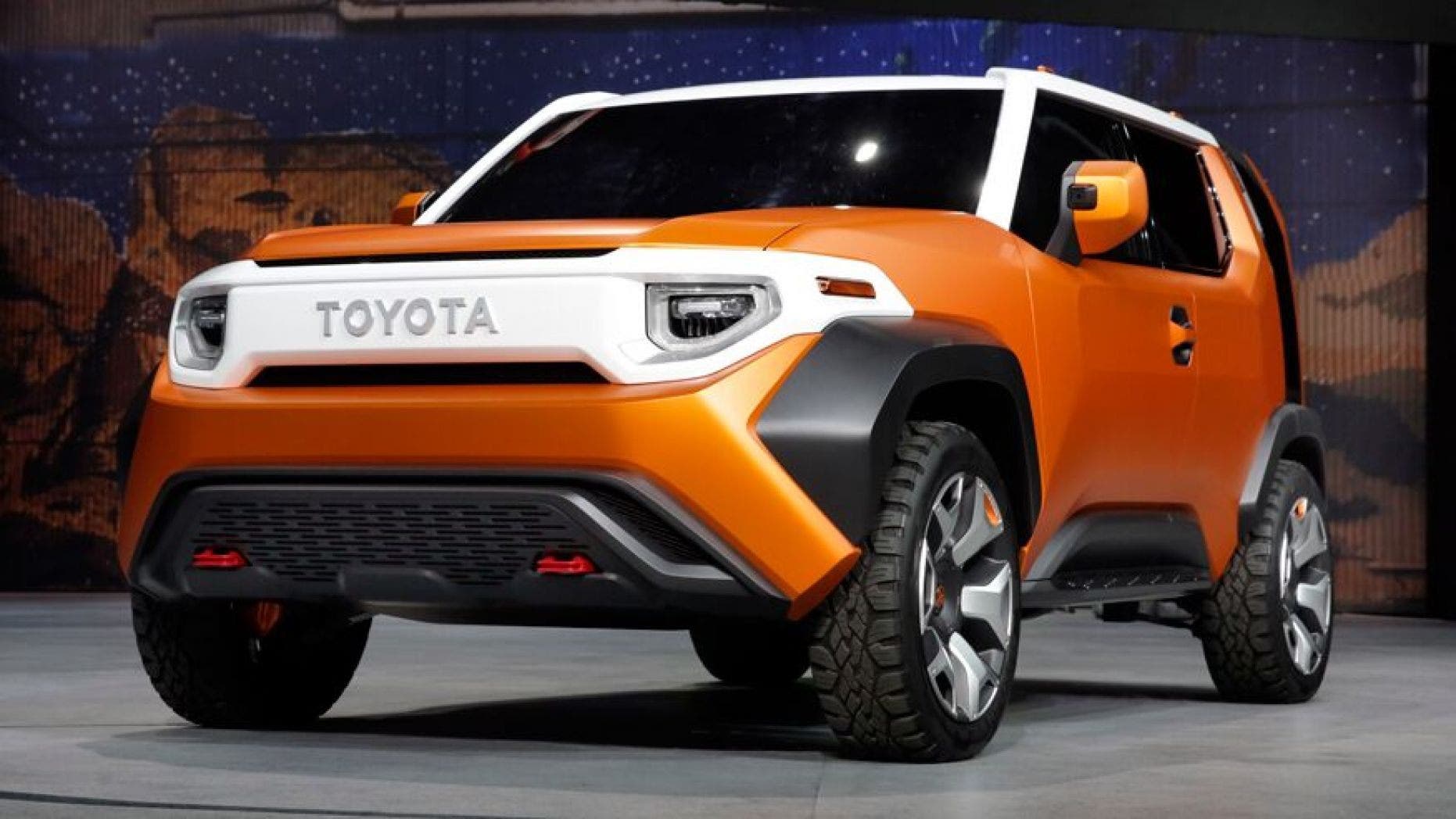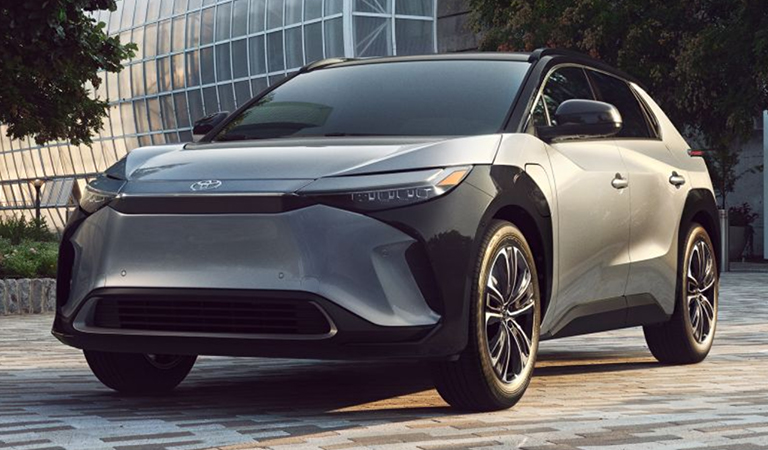
Overview of Toyota SUVs
Toyota’s SUV lineup stands as a testament to its commitment to versatility and reliability. From compact runabouts to spacious family vehicles, Toyota offers a range of SUVs designed to meet diverse needs and preferences. This comprehensive overview explores the evolution, features, and market perception of Toyota’s SUV offerings.
Toyota’s SUVs have consistently been popular for their blend of practicality, fuel efficiency, and safety. Their strong reputation for dependability, coupled with a broad range of models catering to various lifestyles, ensures a significant presence in the automotive market.
Toyota SUV Lineup Segments
Toyota’s SUV lineup encompasses a diverse range of segments, ensuring there’s an option for nearly every driver. From the nimble compact SUVs to the spacious and capable large SUVs, Toyota caters to a variety of needs and preferences.
- Compact SUVs: Models like the RAV4 and C-HR fall into this category, prioritizing fuel efficiency and maneuverability, often appealing to younger drivers and urban dwellers.
- Mid-size SUVs: The Highlander and 4Runner are prime examples of this segment. These SUVs strike a balance between cargo space, passenger capacity, and off-road capabilities.
- Large SUVs: The Sequoia stands as a testament to Toyota’s large SUV offerings, providing maximum passenger space and cargo capacity, perfect for families and those needing extensive cargo space.
Historical Evolution of Toyota SUVs
Toyota’s SUV history is marked by a gradual expansion and refinement of its models. Early models laid the groundwork for future designs, emphasizing ruggedness and practicality.
- Early Models: The Land Cruiser, introduced in the 1950s, exemplified Toyota’s early foray into the SUV market, establishing a reputation for durability and reliability, often used in challenging terrains.
- Design Evolution: Over time, Toyota SUVs have evolved significantly, moving from boxy designs to more aerodynamic and sophisticated shapes. Features like advanced safety systems, infotainment technologies, and improved fuel efficiency have become standard across the lineup.
- Key Models: The RAV4, a cornerstone of Toyota’s SUV lineup, exemplifies its ability to adapt to changing market demands and preferences. Its adaptability and versatility have made it a popular choice for families and individual drivers alike.
General Reputation and Market Perception
Toyota SUVs generally enjoy a strong reputation for reliability, safety, and value. Drivers consistently praise their durability, low maintenance costs, and the widespread availability of parts and service.
“Toyota SUVs are known for their longevity and dependability, making them a smart investment for drivers who prioritize reliability and lasting value.”
Key Features Comparison
The table below provides a comparative overview of key features across different Toyota SUV models. This allows for a more detailed understanding of the various models and their specifications.
| Model | Engine | Fuel Economy (city/highway) | Safety Rating (NHTSA/IIHS) |
|---|---|---|---|
| RAV4 | 2.5L 4-cylinder, Hybrid | 35/40 mpg | 5 stars/Top Safety Pick+ |
| Highlander | 3.5L V6, Hybrid | 20/28 mpg | 5 stars/Top Safety Pick+ |
| 4Runner | 4.0L V6 | 18/23 mpg | 5 stars/Top Safety Pick+ |
| Sequoia | 5.7L V8 | 15/21 mpg | 5 stars/Top Safety Pick+ |
Performance and Features

Toyota SUVs offer a diverse range of powertrains and features, catering to various driving needs and preferences. From fuel-efficient hybrids to powerful V6 engines, Toyota’s SUV lineup provides a compelling mix of performance and practicality. This section delves into the engine options, performance comparisons, safety features, and technological advancements across different models.
Toyota engineers prioritize a balance of power, efficiency, and refined driving experiences in their SUV designs. This focus is evident in the diverse range of engine options available, influencing the performance characteristics of each model. Safety features are meticulously integrated, providing peace of mind and enhanced driver assistance. Modern infotainment systems and connectivity options further enhance the overall driving experience.
Engine Options and Performance Comparisons
Toyota SUVs boast a variety of engine options, catering to diverse preferences. Gasoline engines, hybrid powertrains, and even plug-in hybrid systems are available across the model range. These powertrains provide a range of performance characteristics, impacting acceleration, fuel economy, and overall driving experience. For instance, the Highlander often features a powerful V6, while the RAV4 offers a choice of hybrid or gasoline engines, each tailored to a specific driving style. The engine choice directly impacts the SUV’s acceleration and fuel efficiency figures.
Advanced Safety Features
Toyota SUVs are renowned for their comprehensive suite of safety features. These features prioritize driver and passenger safety, incorporating a range of advanced driver-assistance systems (ADAS). Pre-collision systems, lane departure warnings, adaptive cruise control, and automatic emergency braking are standard or available as options in many models. These advanced features aim to mitigate potential hazards and enhance overall safety.
Technology Features and Infotainment Systems
Modern Toyota SUVs feature sophisticated infotainment systems and connectivity options. These systems enhance the driving experience with user-friendly interfaces, navigation capabilities, and integration with smartphones. The latest models often include touchscreen displays, voice control, and smartphone integration for seamless connectivity. The user interface design and functionality vary across models, influencing the overall experience of using the infotainment system.
Interior and Exterior Design Comparison
| Model | Interior Design | Exterior Design |
|---|---|---|
| Highlander | The Highlander’s interior emphasizes spaciousness and comfort, featuring high-quality materials and thoughtful ergonomics. A sophisticated dashboard and comfortable seating contribute to a premium feel. | The Highlander’s exterior design exudes a blend of ruggedness and sophistication. The design often features sharp lines, robust bumpers, and a commanding presence. |
| RAV4 | The RAV4’s interior is known for its practicality and versatility. The interior layout prioritizes cargo space and passenger comfort. It offers a balance of functionality and a modern aesthetic. | The RAV4’s exterior design often showcases a stylish and compact appearance. Its modern lines and aerodynamic features contribute to a dynamic look. |
| 4Runner | The 4Runner’s interior design prioritizes durability and ruggedness. The interior often includes robust materials and features tailored for off-road adventures. | The 4Runner’s exterior design embodies a strong and capable presence. Its boxy design and robust features clearly signal its off-road capabilities. |
Reliability and Value

Toyota SUVs are renowned for their durability and dependability, factors that significantly impact their overall value proposition. Customer feedback consistently highlights these qualities, often leading to positive experiences with long-term ownership. However, maintenance costs and resale values vary depending on the specific model and its usage history. Understanding these aspects provides a comprehensive picture of the value Toyota SUVs offer.
Customer Reviews and Feedback on Reliability
Customer reviews consistently praise the robust construction and reliability of Toyota SUVs. Numerous online forums and review sites feature positive testimonials from owners who have reported minimal mechanical issues over extended periods. These positive experiences often stem from Toyota’s commitment to quality control and the use of proven, durable components. However, some owners have reported issues with certain models or specific components, emphasizing the importance of thorough research and consideration of individual model-specific feedback.
Maintenance Costs Associated with Different Models
Maintenance costs for Toyota SUVs vary based on factors like model year, engine type, and driving habits. Regular maintenance, including oil changes, tire rotations, and filter replacements, contributes to lower overall costs. However, unexpected repairs or replacements for parts like transmissions or engines can significantly increase the cost of ownership. Comprehensive maintenance schedules and a history of preventative care can help minimize unexpected repair expenses.
| Model | Estimated Annual Maintenance Cost (USD) | Factors Affecting Cost |
|---|---|---|
| RAV4 | $500 – $1,000 | Mileage, driving conditions, and maintenance schedule |
| 4Runner | $700 – $1,500 | Off-road usage, potential for more complex maintenance |
| Land Cruiser | $1,000 – $2,500 | High-end features and potential for more costly repairs |
The table above provides a general overview. Actual costs can vary depending on individual circumstances.
Resale Value of Toyota SUVs
Toyota SUVs often retain a substantial portion of their initial value over time. This is partly due to their established reputation for reliability, making them attractive to potential buyers in the used market. Factors like model year, mileage, and condition directly impact the resale value. For example, a well-maintained 2018 Toyota RAV4 with low mileage will likely command a higher resale value compared to a similar model with higher mileage or noticeable damage.
Pricing Comparison to Competitors
Toyota SUVs often fall within a competitive price range when compared to similar models from other manufacturers. Some models might offer slightly higher or lower prices depending on features and trim levels. The overall value proposition, encompassing reliability, features, and resale potential, helps consumers make informed decisions. A comprehensive comparison of features and prices should be considered for an objective evaluation.
Warranty and Service Packages
Toyota offers comprehensive warranties and service packages that can enhance the value of ownership. These packages vary depending on the specific model and trim level, providing coverage for parts and labor for a specified period or mileage. These service plans can significantly reduce maintenance costs over the lifespan of the vehicle. Toyota’s commitment to customer satisfaction is evident in these various service programs.
Safety and Technology
Toyota SUVs prioritize safety and incorporate advanced technologies to enhance the driving experience. From robust safety features to intuitive infotainment systems, these vehicles aim to provide a secure and connected journey. This section delves into the specifics of safety and technology across Toyota SUV models.
Toyota’s commitment to safety is evident in the various driver-assistance features and advanced safety technologies integrated into their SUVs. These features are designed to mitigate risks and provide a safer driving environment. The sophistication of these systems varies across different models, reflecting Toyota’s dedication to providing a range of options to suit diverse needs.
Safety Features and Ratings
Toyota SUVs consistently achieve high safety ratings from independent organizations. These ratings are a testament to the engineering and design principles that prioritize occupant protection. A variety of safety features, from standard airbags to advanced driver-assistance systems, contribute to these impressive results.
Advanced Infotainment Systems
Toyota’s infotainment systems are designed for intuitive operation and seamless integration with other vehicle functions. Modern systems often feature large touchscreens, smartphone integration, and advanced navigation capabilities. These advancements aim to enhance the driver’s experience while maintaining focus on the road.
Driver-Assistance Features
Driver-assistance features are crucial in enhancing safety and reducing driver workload. These technologies can help prevent accidents, assist with parking, and provide added comfort and convenience. Features like adaptive cruise control, lane departure warning, and automatic emergency braking are examples of this advancement. These features often rely on advanced sensors and algorithms for effective operation.
Advanced Safety Technologies in Different Models
The range of advanced safety technologies varies across different Toyota SUV models. For example, the 4Runner might feature a suite of safety technologies including lane departure warning, adaptive cruise control, and automatic emergency braking, while a more entry-level model might have a more basic set of standard safety features. The level of technology is often correlated with the model’s price point.
Summary of Safety Features by Model
| Model | Safety Features | Description |
|---|---|---|
| 4Runner | Pre-collision system with pedestrian detection, lane departure warning, adaptive cruise control, automatic emergency braking, blind spot monitoring, rear cross-traffic alert | This model prioritizes safety with a suite of advanced driver-assistance features designed to mitigate potential hazards. These technologies aim to enhance the driver’s situational awareness and assist with accident avoidance. |
| RAV4 | Pre-collision system with pedestrian detection, lane departure warning, adaptive cruise control, automatic emergency braking, blind spot monitoring, rear cross-traffic alert, and optional advanced driver-assistance packages | The RAV4 represents a balance between safety and affordability. The model features a comprehensive set of safety features, and optional packages can provide even more advanced technologies. |
| Highlander | Pre-collision system with pedestrian detection, lane departure warning, adaptive cruise control, automatic emergency braking, blind spot monitoring, rear cross-traffic alert, and advanced parking assist systems. | The Highlander is known for its blend of comfort and safety. It typically offers a more comprehensive array of driver-assistance features than some of the more entry-level models, including advanced parking assist systems. |
Market Trends and Competition

The SUV market is a dynamic and competitive landscape, constantly evolving with shifting consumer preferences and technological advancements. Understanding these trends is crucial for Toyota to maintain its position and adapt its SUV offerings to meet the needs of modern buyers. This analysis explores the current market trends, Toyota’s competitive positioning, and the key factors influencing SUV sales.
Current Market Trends in the SUV Segment
The SUV segment is characterized by a diverse range of models catering to various needs and budgets. From compact and fuel-efficient models to larger, luxurious SUVs, the options available are plentiful. The market is also experiencing a surge in demand for electric vehicles and hybrid options, reflecting a growing global commitment to sustainability. Safety features, advanced technology, and interior design are increasingly important factors in consumer purchasing decisions. This trend underscores the evolving needs and expectations of modern SUV buyers.
Comparison with Competitor Models
Toyota SUVs face strong competition from established brands like Ford, Honda, and Jeep, each with its own strengths and weaknesses. Ford’s offerings, particularly the Ford Explorer and Bronco, are known for their ruggedness and off-road capabilities. Honda’s SUVs, like the CR-V and Pilot, emphasize fuel efficiency and a refined driving experience. Jeep’s SUVs, such as the Wrangler and Grand Cherokee, are highly sought after for their off-road prowess and distinctive styling. Toyota’s SUVs differentiate themselves through a blend of practicality, reliability, and fuel efficiency. The RAV4, for instance, is a popular choice due to its hybrid powertrain options and overall value proposition.
Evolving Needs and Preferences of SUV Buyers
Modern SUV buyers prioritize more than just practicality and fuel efficiency. Features like advanced driver-assistance systems, connectivity options, and comfortable interiors are highly valued. Safety is paramount, with buyers seeking vehicles equipped with cutting-edge technology for accident avoidance and mitigation. Furthermore, sustainability is a growing concern, leading to a greater demand for hybrid and electric SUVs. These evolving needs highlight the importance of technological innovation and a commitment to environmental responsibility in the SUV market.
Key Factors Influencing Toyota SUV Sales
Several key factors influence the sales performance of Toyota SUVs. Brand reputation, a hallmark of Toyota’s history, plays a significant role. The company’s reputation for reliability and durability continues to resonate with consumers. Competitive pricing and value-for-money propositions are critical for maintaining market share. The presence of diverse models catering to different needs and budgets also contributes to Toyota’s success. The consistent introduction of innovative features, including hybrid powertrains and advanced safety technologies, is another driving force behind Toyota’s sales performance.
Market Share and Popularity of Toyota SUVs
Toyota holds a substantial market share in the SUV segment, with models like the RAV4 consistently ranking among the top sellers. Data from industry reports demonstrate Toyota’s strong position and enduring popularity. Factors like customer loyalty, brand recognition, and the ongoing introduction of appealing new models contribute to this sustained success. However, the dynamic nature of the market necessitates continuous adaptation and innovation to maintain this prominent position.
Future Outlook
Toyota’s SUV lineup is poised for continued evolution, driven by a confluence of factors including emerging technologies, evolving consumer preferences, and ongoing market analysis. The company’s commitment to innovation and its established reputation for reliability and value will likely play a significant role in shaping the future of its SUV offerings. Anticipating these trends is crucial for maintaining a competitive edge in the dynamic automotive landscape.
Potential Future Developments and Features
Toyota is expected to integrate advanced driver-assistance systems (ADAS) more deeply into its SUV models. Features like enhanced automated emergency braking, adaptive cruise control with lane keeping assist, and potentially even semi-autonomous driving capabilities will likely become standard or readily available options. These features are becoming increasingly important to consumers, particularly those seeking safety and convenience. Additionally, expect greater emphasis on personalization and customization options, allowing buyers to tailor their SUVs to specific needs and preferences.
Impact of Emerging Technologies
The integration of electric vehicle (EV) technology is a key area of focus. Hybrid powertrains will likely continue to evolve, with greater efficiency and performance improvements. Furthermore, the emergence of fully electric SUVs is expected, potentially utilizing innovative battery technologies and charging infrastructure advancements. Toyota’s strong presence in the hybrid market suggests a planned and measured approach to electric vehicle adoption, aligning with their broader strategy of sustainability and environmental responsibility.
Design Changes and Upgrades
Future Toyota SUVs will likely see subtle yet significant design modifications. These changes will reflect contemporary styling trends, emphasizing aerodynamic efficiency and improved interior space utilization. The use of advanced materials, potentially including lightweight composites, could further enhance performance and fuel efficiency. Interior design will likely prioritize intuitive user interfaces, advanced infotainment systems, and premium materials to elevate the overall driving experience.
Adapting to Market Trends and Consumer Needs
Toyota is actively monitoring and responding to shifts in consumer preferences. This includes a greater emphasis on connectivity and infotainment features, as well as an increased focus on personalization and customization options. The company will likely continue to develop SUVs that balance practicality, affordability, and desirable aesthetic features, all while addressing environmental concerns. Toyota’s long history of producing durable and reliable vehicles is expected to remain a core value proposition.
Potential New Models or Redesigns
- A fully electric SUV, potentially positioned as a premium offering to compete with other leading EV models. This model would likely leverage Toyota’s expertise in hybrid technology to deliver both performance and efficiency.
- A redesigned version of the popular RAV4, incorporating more advanced ADAS features and a refreshed exterior design, reflecting contemporary styling trends. The RAV4 has a strong track record in the market, suggesting a significant redesign to meet evolving consumer needs.
- A larger SUV, targeted at families or those requiring more cargo space, could be a potential addition to the Toyota lineup. This would address the increasing demand for larger SUVs in the market.